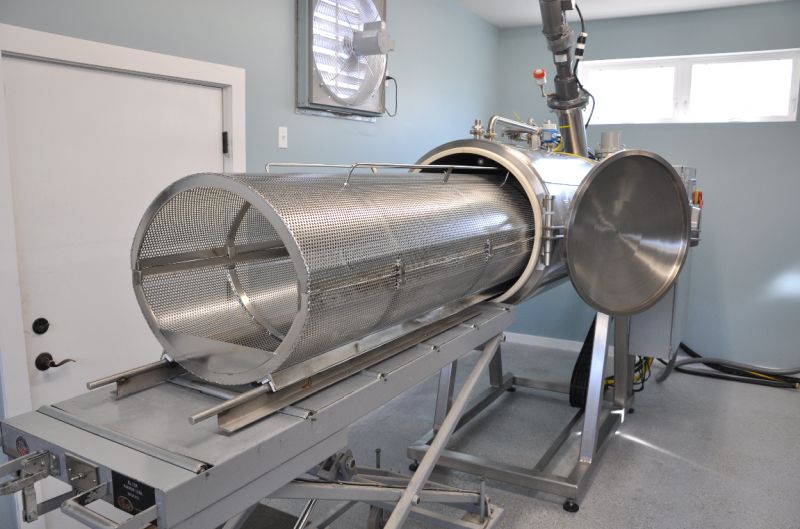
On Tuesday, May 11, the Wisconsin State Senate approved without debate Senate Bill 228, which would legalize the use of alkaline hydrolysis to dispose of dead bodies.
During alkaline hydrolysis, the deceased is placed in a vat of hot water and chemicals until most of the body dissolves. The liquid is then treated as wastewater and either disposed of through the wastewater system or boiled away, leaving pieces of bone that can be pulverized and returned to loved ones in an urn. Alkaline hydrolysis can also use anywhere from 100 to 300 gallons of water and influence the water supply’s pH levels.
All five Wisconsin Catholic Bishops opposed this bill, which next goes to the state Assembly.
“Human beings are created in the image and likeness of God, and the human body, which reflects God’s image in a special way, is sacred. When we bury or entomb human remains, we are honoring the body’s sacredness,” said Auxiliary Bishop James T. Schuerman. “Alkaline hydrolysis is a process of disposing of human remains, treating them like waste. The body is broken down in water and chemicals, and the liquid remains are disposed of in the wastewater system. This process does not show respect or reverence for the human body and stands in opposition to our Christian understanding of honoring the dead.”
The Wisconsin Catholic Conference testified on behalf of the Catholic bishops in Wisconsin in an April 27 hearing, said WCC Executive Director Kim Vercauteren.
“Catholic teaching is centered on the life and dignity of the human person — because each person is created in the image and likeness of God,” she said. “The human body is a physical, material manifestation of God’s image and shares in that dignity. Even in death, we show reverence and compassion for God’s creation by praying for and laying to rest the departed and caring for those grieving the death of a loved one.”
The Catechism of the Catholic Church states the bodies of the dead must be treated with respect and charity, in faith and hope of the Resurrection. The burial of the dead is a corporal work of mercy; it honors the children of God, who are temples of the Holy Spirit. (CCC, no. 2300)
Sponsored by Republican Sen. Patrick Testin from Sevens Point, he defended the bill in the recent hearing, stating that some Wisconsin funeral directors are receiving more requests for flameless water cremation. Currently, funeral directors must transport human remains to another state where the process is permitted.
Vercauteren said the heart, mind, flesh and bones of a human person are all elements of a unique creation, down to the DNA, which must be honored even after death.
“Our concern is that with alkaline hydrolysis, remains are washed into a wastewater system as though the body created by God never existed,” she said. “Wastewater does not honor the sacredness of the body, nor does it allow the grieving to honor the dead after disposition.”
The Church recognizes and permits cremation; however, it is allowed as a burial selection in addition to customary interment because the body may remain “as-one” even though it is reduced to ashes, explained Vercauteren.
“Under Church teaching, respectful final disposition of cremated remains involves
interment or entombment of all remains in the consecrated grounds of a cemetery,” she said. “The body is sacred and is buried whole, even as ashes. This standard is impossible to maintain through alkaline hydrolysis.”
